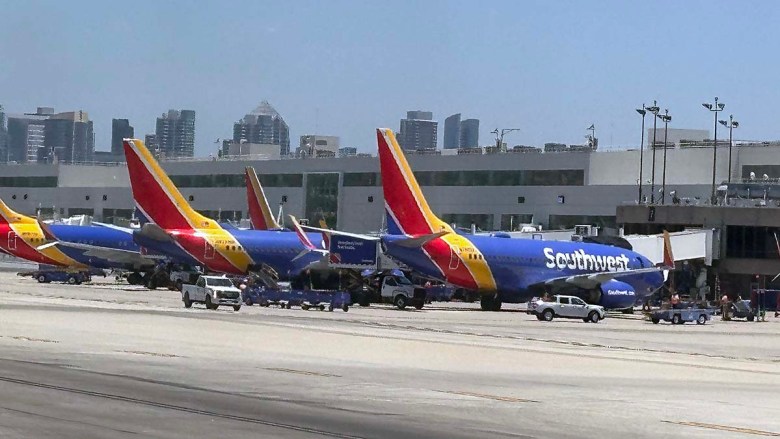Travelers across the United States are facing significant disruptions as flight delays and cancellations increase due to a reduction in air traffic capacity. The U.S. Department of Transportation has implemented these cuts amid ongoing staffing issues with air traffic controllers at 40 major airports, linked to the federal government shutdown. Controllers are essential workers, required to continue their duties without pay during this period, leading to heightened strain on the air traffic system.
As of 07:00 on Saturday, over 10,844 flights had been delayed and 1,110 flights canceled nationwide, according to data from FlightAware. This includes 10 delays and 13 cancellations at San Diego International Airport, which ranks as the third busiest airport in California and the 25th in the nation. Last weekend, there were 2,740 flight delays, and officials anticipate the situation to worsen unless the government shutdown is resolved.
U.S. Transportation Secretary Sean Duffy announced on Wednesday that capacity reductions would begin on Friday at the affected airports. The Department of Transportation (DOT) stated that flight capacity would be cut by 4% starting Friday, followed by 6% on Tuesday, 8% the following Thursday, and reaching 10% by the upcoming Friday.
The Federal Aviation Administration (FAA) is also restricting commercial space launches and reentries to the hours of 22:00 to 06:00 local time, and has prohibited parachute operations and photo missions near the impacted airports. Airports in regions such as San Diego, Los Angeles, and Ontario are among those affected, although airfields not included in the list may still experience indirect impacts on flight operations.
Duffy emphasized the importance of safety in his statement, stating, “My department has many responsibilities, but our number one job is safety. This isn’t about politics — it’s about assessing the data and alleviating building risk in the system as controllers continue to work without pay. It’s safe to fly today, and it will continue to be safe to fly next week because of the proactive actions we are taking.”
At Los Angeles International Airport, reports indicated 20 flight delays and 19 cancellations as of Saturday morning. In contrast, Ontario International Airport reported no delays or cancellations. Airlines have been proactive in alerting passengers about potential impacts on their flights.
United Airlines has advised travelers that updates to their schedules will be communicated promptly. Those flying between November 6 and 13 can request a refund or reschedule without penalty. Similarly, Southwest Airlines indicated that “the vast majority” of its customers would not be affected but offered flexibility for passengers with flights booked through Wednesday, allowing them to adjust their travel plans at no cost or receive a refund if they choose not to travel.
Delta Air Lines has also communicated potential flight reductions to its customers, providing guidance on flight changes or cancellations without financial penalties. Meanwhile, Frontier Airlines expects most of its flights to operate as scheduled but will keep passengers informed regarding any changes that may affect their travel plans. Customers whose flights are delayed for more than three hours on domestic routes or six hours on international flights are eligible for rebooking or refunds.
As travelers navigate these disruptions, their patience and understanding will be tested in the coming days, with air traffic capacity expected to remain limited until the federal government resolves its ongoing budgetary issues.







